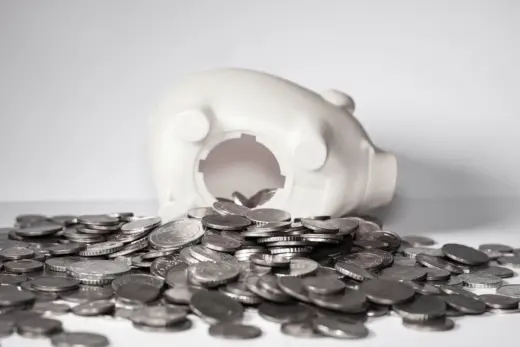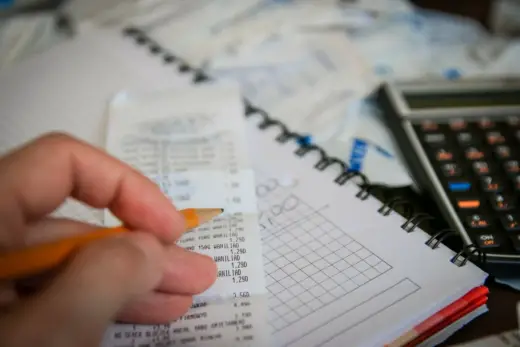Do you have an adequate savings plan tips, ISA money guide, Retirement finance advice
Do you have an adequate savings plan?
8 March 2022
Do you have an adequate savings plan? Here’s why it has to be a balanced one.
You have plenty of options available when it comes to saving your money. If you’ve already chosen to see it into an ISA or some other savings account, that is excellent news.
However, it’s essential that you adopt a balanced savings plan. This article aims to inform you how to do that to enjoy the present and prepare for your future.
Do you have an adequate savings plan – benefits list
Why should you save?
Many people ask this question, especially when money is tight. However, money has a significant influence on your life. Setting some funds aside today will help you cover more considerable expenses, unexpected occurrences, or significant events in the future. Therefore, saving can provide you with peace of mind and help you achieve greater freedom.
Five principles for saving money.
If you are a regular saver, and you’ve managed to turn it into a habit, that’s great. However, for some people, saving can be a challenge. If you are one of these people, here are five principles for saving money.
- Set realistic savings goals.
Everyone has different incomes, aspirations, spending habits, and financial obligations. Therefore, people can set aside varying amounts of money when it comes to saving.
When setting goals for your savings, you should be realistic and not match other people. If you try to set a savings goal that’s too high, you can become demotivated when you don’t achieve it. In turn, this can lead you to give up saving altogether.
- Save small amounts often.
In partnership with the previous principle, saving small amounts often can help you develop a regular savings habit. Saving small amounts puts less pressure on you, so you’re less likely to quit. Also, over time, these small amounts will build up and have a significant impact on your life.
- Embrace discounts.
The rise in e-commerce has provided plenty of opportunities for getting discounts. Using online vouchers and comparison sites enables you to spend less. You can put aside the money you save through such deals in your savings pot. The mention of pots brings us to our following principle.
- Harness the power of pots.
Separating your money into different parts can make saving easier. For instance, you could have a dedicated savings pot along with ones for day-to-day spending, emergencies, and your retirement. We will cover these individual money pots in more detail shortly.
- Adopt a payday savings principle.
When you’ve decided on how much you will save each month, you should ensure that money goes to your savings pot. One way to guarantee you’ll save money is to transfer it to your savings pot as soon as you get paid. Doing so will ensure you’re not tempted to spend it on something else.
Individual money pots.
As mentioned earlier, it is now time to look at your money pots in more detail.
Living expenses pot.
This pot should include the money you need to pay your monthly living expenses. It could cover costs such as food, utilities, rent, etc. You may want to subdivide your living expenses pot further. For instance, you could have separate parts for food, another for utilities, and one for rent.
As your living expenses need paying regularly, you’ll need to keep this money somewhere that is easily accessible. A current account is ideal as it offers instant access, but you will earn little interest on your money. You can set up direct debits to cover things like utility bills and rent payments from your current account.
Short-term savings money pot.
To pay for more significant spending such as household appliances, holidays, or big events, it’s ideal to have a short-term savings money pot. As you do not need this money immediately, it’s a good idea to have it working for you. Therefore, you should consider keeping this money in a savings account to accrue some interest.
However, you should be aware that some savings accounts come with access restrictions. Therefore if you think you might need the money in a hurry, you should find an account that gives you the access you require.
Emergency money pot.
Some people use their short-term savings to cover emergencies. However, there is an argument for establishing a dedicated emergency money pot. Doing so allows you to have a fund that will cover things like breakdowns, accidents, or other unfortunate situations.
Ideally, your emergency money pot should be sufficient to cover your living expenses for at least three months. This amount of money is quite substantial, so you may have to build it up over some time.
Retirement money pot.
For most people, their retirement money pot means a pension plan. If you are employed, the chances are you have already established your retirement money pot in the form of a workplace pension scheme. It’s critical to prepare ahead for your retirement and get professional assistance from a financial expert like Portafina.
To qualify for a workplace pension, you must be over 22 and earn a minimum of £10,000 annually. If this is the case, 4% of your salary goes towards your pension each month. A further 1% gets added through tax relief, and your employer must contribute at least 3%.
Workplace pensions have become crucial, especially with the decline of final salary pension schemes. Such schemes guaranteed a set income each month, which was incredibly valuable. However, they were also costly for companies, and now they have become rare.
Another aspect of your retirement money part will be your State Pension. Currently, the maximum payment you can receive from the state pension is £179.60 per week, equating to an annual income of £9339.20. You must have made National Insurance contributions for 35 years to receive this amount.
Even if you qualify for the maximum pension, you should consider whether this amount is sufficient for you to sustain the lifestyle you desire in retirement. More likely, you will have to top this up with other sources of retirement income, such as other pensions.
However, you should be aware that not all pensions are equal. Some will perform well and come with low fees, while others are expensive to administer and perform less favourably.
Whichever pensions you have, it’s a good idea to check on their performance regularly. Doing so will enable you to take corrective action early enough to impact your retirement funds positively.
Comments on this guide to do you have an adequate savings plan to buy property article are welcome.
Glasgow Building Designs
Glasgow Architecture Designs – architectural selection below:
50 Bothwell Street Office News

image courtesy of architects practice
50 Bothwell Street Office Redevelopment
Comments / photos for the Do you have an adequate savings plan? advice page welcome



